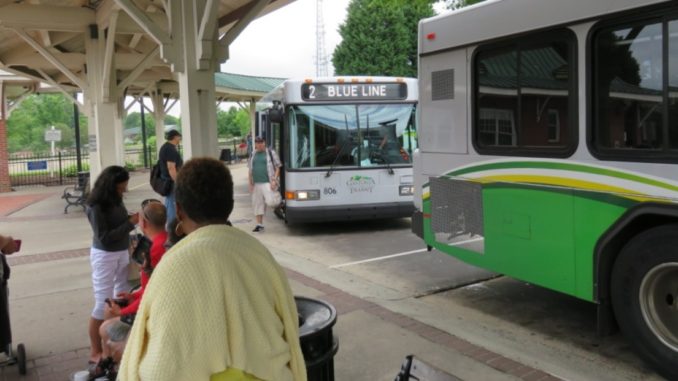
Gastonia, NC (January 3, 2024) – The Gastonia City Council has approved a 36-month, $1.65 million contract in the first year with River North Transit, LLC to provide on-demand transit services to riders, who complete approximately 144,000 trips annually. The improved service will launch July 1, 2024. The amended service delivery will not displace ADA transportation services (para-transit).
“We saw a need to provide on-demand microtransit transportation to our residents as our city continues to grow,” said Mayor Richard Franks. “This move away from fixed-route buses will provide cost savings and will increase accessibility for everyone in our community.”
The City also determined that on-demand microtransit will address a limited service area, hour-long wait times, an aging fleet of buses, and inequitable access to bus stops.
What is on-demand microtransit?
On-demand microtransit is similar to private rideshare services, allowing riders to book and pay for trips online, whether using personal computers or personal mobile devices connected to the internet. Riders are typically picked up at their preferred origin and taken to their preferred destination (curb-to-curb service). Riders can also take spontaneous trips and not be dependent on fixed-route service.
“Residents will experience more efficient, convenient, and personalized public transit services,” said Randi Gates, Gastonia Department of Transportation Director. “We are confident that this model will better serve our current transit customers and others who desire to use public transportation.”
Benefits of On-Demand Microtransit
- Scheduled rides for passengers
- Reduced wait times
- Smaller, more efficient vehicles
- Increased ridership
- Shorter travel times (depending on destinations and return trips)
- Greater accessibility for passengers
- Expanded service area
###
Gastonia Transit currently operates six fixed-routes within the City of Gastonia and is characterized as a “pulse” system with the majority of the routes beginning and ending at the Bradley Station at regular intervals. The agency covers nearly 295,000 miles per year, providing service to over 144,000 passengers in FY 2023. The system currently averages seven passengers per vehicle hour across all routes.
